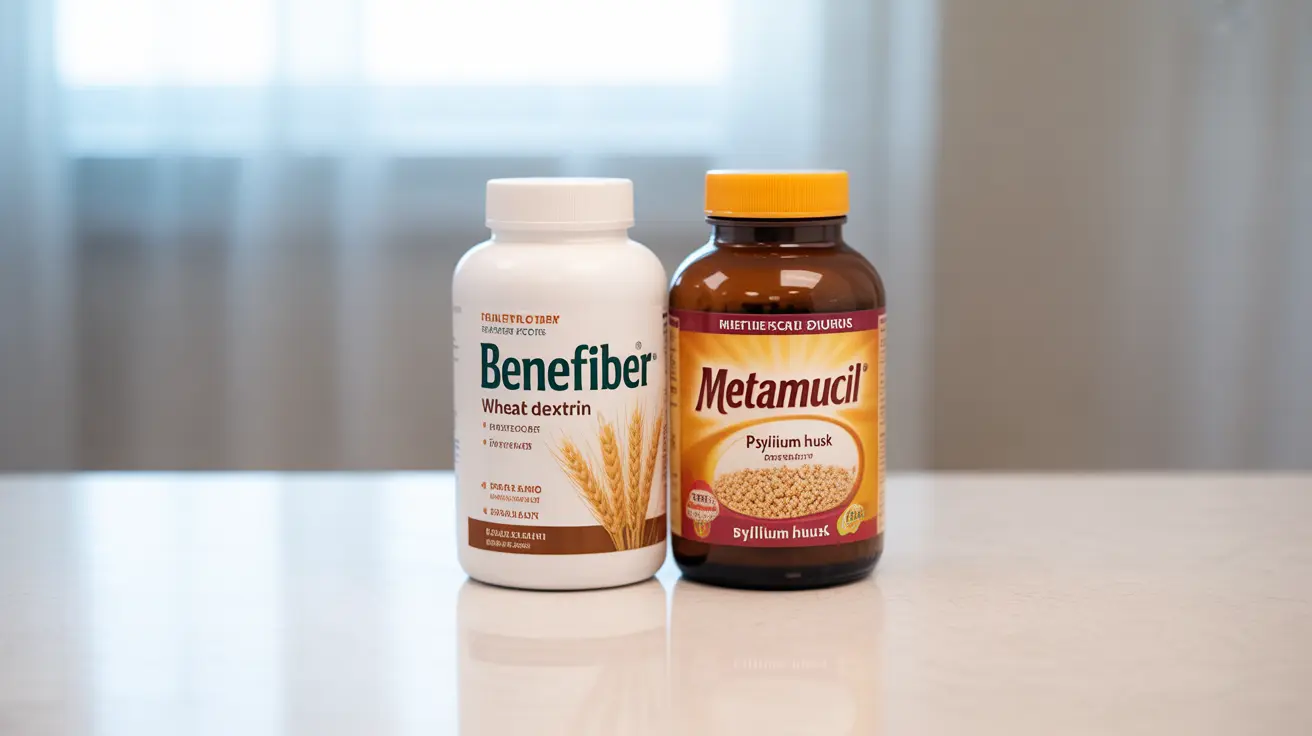Navigating the world of fiber supplements can be overwhelming, especially when comparing two popular brands like Benefiber and Metamucil. Both supplements offer unique benefits for digestive health, but understanding their differences is crucial for making an informed decision about which one might work better for your specific needs.
In this comprehensive guide, we'll explore the key differences between Benefiber and Metamucil, examining their active ingredients, health benefits, potential side effects, and specific use cases to help you make the best choice for your health goals.
Understanding the Active Ingredients
Benefiber and Metamucil work differently because they contain distinct types of fiber. Benefiber contains wheat dextrin, a soluble fiber derived from wheat starch, while Metamucil's active ingredient is psyllium husk, a natural fiber source that forms a gel-like substance when mixed with liquid.
Benefiber's Wheat Dextrin
Wheat dextrin is completely soluble and dissolves clear in liquids, making it nearly undetectable when mixed into beverages or soft foods. This characteristic makes Benefiber particularly appealing for those who are sensitive to texture changes in their food and drinks.
Metamucil's Psyllium Husk
Psyllium husk is a more viscous fiber that creates a noticeable thickness when mixed with liquid. This property can actually be beneficial for some users, as it helps create a feeling of fullness that may aid in weight management efforts.
Health Benefits Comparison
Digestive Health Benefits
Both supplements support regular bowel movements, but they work slightly differently. Benefiber promotes the growth of healthy gut bacteria and provides gentle fiber supplementation. Metamucil's psyllium fiber creates a more pronounced bulking effect and may work more quickly for immediate constipation relief.
Additional Health Advantages
Metamucil offers some unique benefits beyond digestive health, including potential help with blood sugar management and cholesterol reduction. Benefiber, while primarily focused on digestive health, may be better tolerated by those with sensitive digestive systems.
Usage and Dosage Considerations
The appropriate dosage varies between these supplements. It's essential to start with a small amount and gradually increase to the recommended dose to minimize potential digestive discomfort. Both supplements should be taken with plenty of water to prevent constipation and ensure proper function.
Mixing and Administration
Benefiber's clear-mixing property makes it versatile for adding to various beverages and foods. Metamucil requires more immediate consumption after mixing and may have a more noticeable presence in drinks.
Frequently Asked Questions
What are the differences between Benefiber and Metamucil in terms of constipation relief and additional health benefits? Benefiber provides gentle, gradual constipation relief through wheat dextrin fiber, while Metamucil offers more immediate relief through psyllium husk. Metamucil has additional benefits for blood sugar and cholesterol management, while Benefiber focuses primarily on digestive health.
How do I choose between Benefiber and Metamucil based on my dietary allergies and health goals? Choose Metamucil if you have wheat allergies or celiac disease, as Benefiber contains wheat-derived ingredients. Select Benefiber if you prefer a clear-mixing supplement or have sensitivity to psyllium. Consider Metamucil if you're specifically looking for help with blood sugar or cholesterol management.
Can Metamucil be used to manage blood sugar levels in people with type 2 diabetes, and is it safe? Yes, Metamucil's psyllium fiber can help manage blood sugar levels in people with type 2 diabetes by slowing glucose absorption. It's generally safe when used as directed, but consult your healthcare provider before starting any supplement regimen.
What are the common side effects of taking Benefiber and Metamucil, and how can they be minimized? Common side effects include bloating, gas, and stomach discomfort. Minimize these by starting with a small dose, gradually increasing it, drinking plenty of water, and taking the supplement as directed.
Is it safe to take Benefiber or Metamucil if I have a history of gastrointestinal issues such as bowel obstruction? Individuals with a history of bowel obstruction should consult their healthcare provider before using either supplement. Both products are contraindicated in cases of intestinal blockage, and special precautions may be necessary for those with other gastrointestinal conditions.




